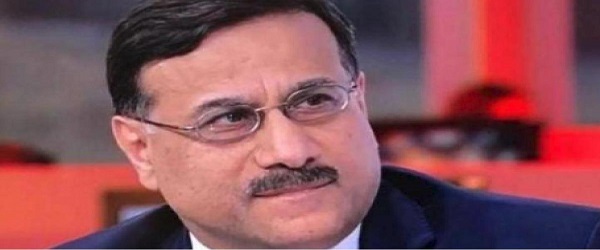31-Jul-2019

Hala News ـــ Minister of Finance Izzedine Kanakri stressed that the national economy witnessed during the first half of this year a remarkable growth of exports by 5.9%, imports decreased by 1.3% and foreign currency reserves increased by 8.3%.
He added in a lecture delivered Tuesday evening at the Association of International Affairs entitled "Financial Policy in Jordan: Opportunities and Challenges" that our indicators in all sectors are moving towards growth. This growth has a great impact on the economy. .
Kanakri said that the real estate sector was less developed than in the previous year, prompting the government to take action to reduce the base price by 20 percent because the sector occupies a large number of professional sectors in addition to allowing the release of 4 dinars instead of 10 dinars.
He pointed out that the financial revenues during the first half of this year amounted to 149 million, which is lower than expected, pointing out that the expenditures fell less than expected, but increased from last year 87 million dinars.
Kanakri said that there is a program of reform of indebtedness of 29.5 million dinars, stressing the need to reduce them gradually through economic growth and encourage exports.
He stressed the need to continue financial reform with the International Monetary Fund or our national program but by promoting economic growth.
He said that the coming years will see a decrease in revenues due to the shift in the use of vehicles from fuel to the Hubbard and electricity, which requires attention to promote economic growth by encouraging investments.
He stressed the need to invest in tourism because the growth in its figures is increasing from last year as well as boosting exports, especially after opening a number of borders with neighboring countries such as Syria and Iraq.
Kanakri pointed out that the Iraqi-Jordanian oil pipeline affects the promotion of economic growth in a positive way for many investments related to this aspect.
In terms of the budget, he said that it amounted to 9 billion; 6 billion of which are salaries and pensions, and a billion to support aid and cash and operating expenses for institutions, and 2 billion are not enough to create a noticeable growth felt by citizens, stressing the need to share with the private sector.
"We have an educational, tourist and cultural infrastructure that contributes to making us a developed country," Kanakri said. "What is most frightening for us is that we are spending on current and not productive projects, which is reflected in indebtedness."
He pointed out that the reduction of indebtedness to reduce the deficit and raise the rate of economic growth, pointing out that the budget deficit fell from 1.5 billion dinars to 900 million dinars.
He stressed that the Jordanian dinar is fine, pointing to the high reserves of foreign currencies and this is indicative of the strength of the dinar.
"There is coordination in the fiscal and monetary policy between the Ministry of Finance and the Central Bank. The view of the Central Bank is taken so that the external indebtedness is not expensive by prolonging the debt and reducing the cost of paying the installments," he said, referring to the need to invest in areas that do not add a new burden on indebtedness.
At the conclusion of his lecture, which was attended by a number of members of the Assembly, he answered the questions and questions of the audience.
×
![]()